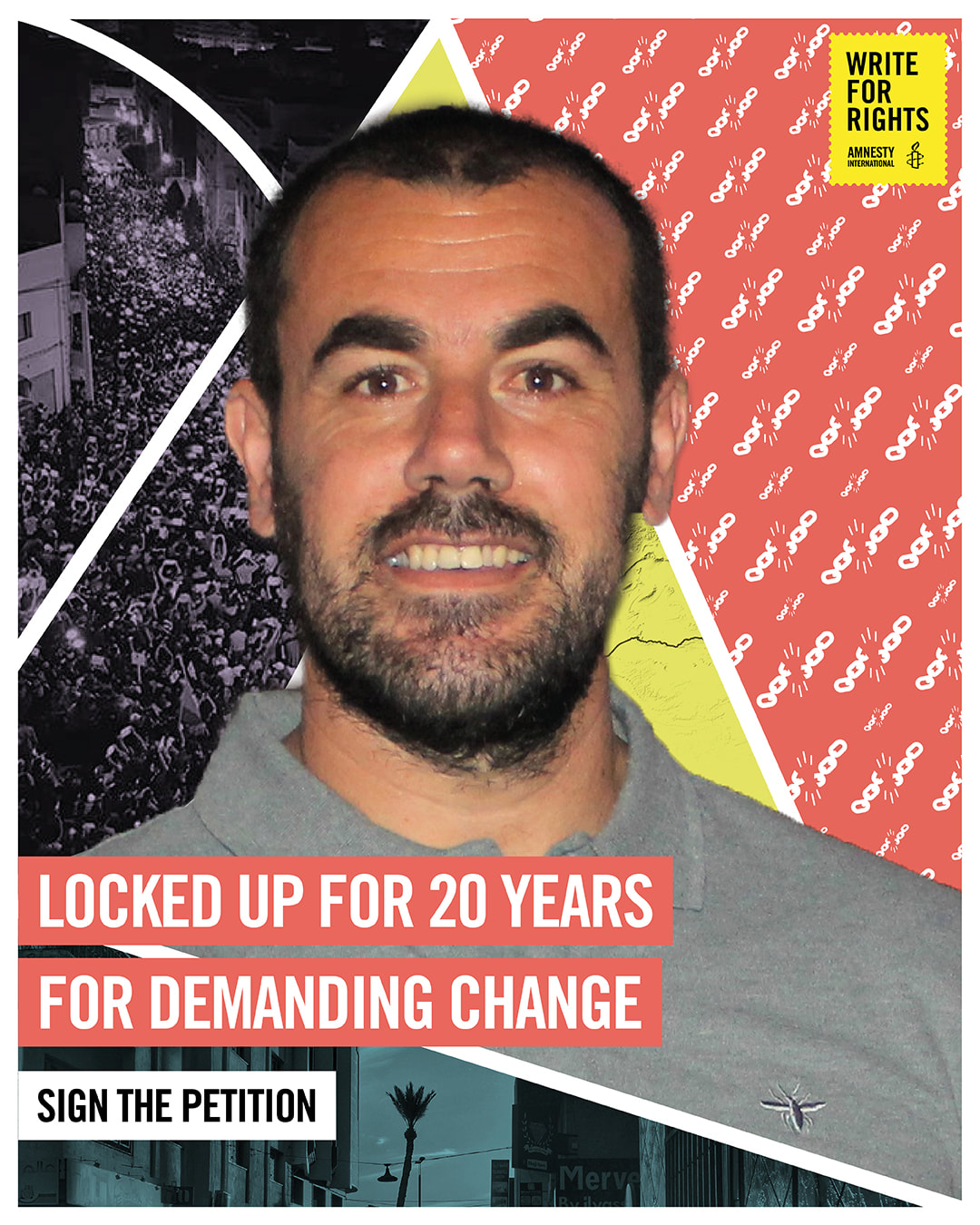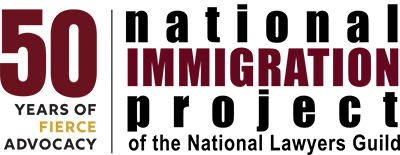Just as the earth rests in winter, we wish you a space for inner and outer peace hibernation12/24/2022 Sports can be an area where #selfadvocacy can happen here are some #paraathlete talking about some of the myths these professional athelets come across.
Nasser was sentenced to 20 years in prison, just for being a part of the Hirak El-Rif movement. He has been detained in prolonged solitary confinement since his arrest.
Tell the Moroccan authorities to free Nasser today. Society of the Flora, Fauna & friend is honored to have signed with so many amazing coalition partners to Ambassador Susan Rice calling for the launch of a presidential commission to study the establishment of an American National Human Rights Institution.
NEW YORK — A coalition of civil and human rights and social justice groups and academic partners called on the Biden administration today to establish a presidential commission to study establishing a national human rights body for the United States. In a letter to Ambassador Susan Rice, director of the White House’s Domestic Policy Council, 84 organizations and 37 individuals urged the administration to lay the groundwork for a national institution to monitor and promote implementation of the United States’ international human rights obligations. “Nearly all of the United States’ democratic partners worldwide have national institutions to help them meet their human rights commitments,” said David Kaye, a professor at the University of California, Irvine, School of Law and a former United Nations special rapporteur on freedom of expression. “But the United States stands as an exception; it has adopted treaties but done very little to implement them domestically. It’s time to make human rights not just a foreign policy issue, as important as that is, but also a question of America’s domestic practice.” The letter makes clear that the United States has played a pivotal global role in establishing the international human rights system, beginning with the Universal Declaration of Human Rights, adopted 74 years ago this month. But it adds that the United States has also historically resisted domestic implementation, monitoring and accountability mechanisms. The letter notes that the U.N. Committee on the Elimination of Racial Discrimination earlier this year reviewed United States’ racial justice record and welcomed the U.S. delegation’s indication that it had taken under advisement the recommendation favoring the creation of such domestic human rights body. Felice Gaer, director of the Jacob Blaustein Institute for the Advancement of Human Rights at the American Jewish Committee and a longtime former member of the UN Committee Against Torture, echoed these sentiments. “When properly constituted and mandated, national human rights bodies can provide valuable oversight and means of implementing a country’s international human rights obligations,” Ms. Gaer noted. “An American NHRI can offer a meaningful path to encourage U.S. institutions, buoyed by civil society, to adhere to human rights commitments that our government has made and to which we routinely call on other countries to adhere.” The letter does not ask the United States to make any new international commitments beyond the treaties it has already joined, including the International Covenant on Civil and Political Rights (1992), the Convention against Torture (1994), and the International Convention on the Elimination of All Forms of Racial Discrimination (1994). The United States has also ratified two protocols under the Convention on the Rights of the Child, one prohibiting the involvement of children in armed conflict (2002) and the other prohibiting the sale of children, prostitution and child pornography (2002). “The United States is lagging behind other nations in translating its global human rights obligations into domestic policies, and an independent National Human Rights Institution would help advance this goal,” said Jamil Dakwar, director of the American Civil Liberties Union’s Human Rights Program. “But such an institution must do more than monitor and implement U.S. human rights commitments. It can educate and make human rights more visible. It can provide a platform for marginalized communities to uphold their human rights. And it can, in a near-term sense, reinforce the Biden administration’s own priorities, especially under its Summit for Democracy and National Strategy on Gender Equity and Equality.” Further information on national human rights institutions may found at this report released this week by the UC Irvine School of Law International Justice Clinic. National Immigration Project is asking for your support to keep Pedro Echeverria from being deported to El Salvador where he faces extreme danger, and to express thanks to all who have already helped uplift his campaign.
Because of his past, Pedro has experienced police harassment and intimidation. In 2017, Pedro was shot 4 times by the LAPD but they charged *him* with assaulting an officer. He served 5 years in prison and later transferred to ICE, he's currently in Otay Mesa Detention Center fighting his deportation. Pedro's family and community are ready to welcome him home, but ICE has refused to release him. On Friday, December 16th, Pedro has an immigration court hearing where a judge will determine whether or not Pedro will be deported. We're asking for your help to #FreePedro:
Human Rights Defense Center maintains the Prison Phone Justice website The issue of prison and jail phone calls, which typically cost much more than non-prison calls. Prison phone contracts are based on a "commission" model, where the phone service provider pays a commission (kickback) to the contracting government agency, such as a state prison system or county jail. These kickbacks inflate the costs of prison and jail phone calls, which in the vast majority of cases are paid not by prisoners but by their family members. This website includes detailed information on state-by-state prison phone rates and commission data, as well as reports, articles and other resources related to prison phone services and the prison phone industry. Also please visit the Campaign for Prison Phone Justice site, which includes resources for getting involved in this issue as an advocate or activist. State Kickbacks paid by families
Kickback percentage Cost of 15 min call Rank for call affordability Federal Bureau of Prisons No kickbacks $3.75 44th Alabama $3,912,675.63 $3.75 44th Alaska $1,164,059.91 $3.75 44th Arizona. $8,274,270.31 $3.00. 41st Arkansas. $2,504,327.05 $4.80 48th California No kickbacks $1.23 23rd Colorado No kickbacks $1.80 29th Connecticut $5,090,732.25 $4.87 49th Delaware $2.29 34th Florida. $5,156,269.19 $2.10. 31st Georgia $8,062,200.60 $2.40 35th Hawai $200,000.00 $1.05 17th Idaho. $849,732.15 $1.65 26th Illinois No kickbacks $1.05 17th Indiana $1,696,977.76 $3.84 47th Iowa $677,159.61 $1.13. 19th Kansas $2.70 39th Kentucky $5.70 51st Louisiana $3,044,009.33. $3.15 43rd Maine $367,231.71 $5.30 50th Maryland No kickbacks 483rd Massachusetts$2,388,145.59. $1.50 24th Michigan $9,889,212.1871.75 $2.40 35th Minnesota $625,022.48 $0.60 6th Mississippi $42,000.00 $0.58 5th Missouri $1,542,524.85 $0.75 10th Montana $276,000.00 $2.14 33rd Nebraska No kickbacks. $0.94 15th Nevada $5,000,000.00 $2.10 31st New Hampshire $360,000.00 $0.20 1st New Jersey No kickbacks. $0.6 69th New Mexico No kickbacks $1.20 21st New York No kickbacks $0.64 8th North Carolina $7,627,426.11 $1.50 24th North Dakota $97,856.1240% $1.1820th Ohio No kickbacks $0.75 10th Oklahoma $1,017,657.90 $3.00 41st Oregon $3,000,000.00 $2.40 35th Pennsylvania $3,470,852.00 $0.88 3rd Rhode Island No kickbacks 42nd South Carolina No kickbacks 2nd South Dakota $454,360.50 $1.20 21st Tennessee $4,080,000.00 $2.40 35th Texas $6,760,593.15 $0.90 14th Utah $1,003,057.31 $2.85 40th Vermont $165,691.680.01 $1.04 16th Virginia $3,794,747.4935 27th Washington $3,856,229.00 $1.65 26th West Virginia $0.1% $0.4 83rd Wisconsin. $625,586.27 $1.80 29th Wyoming $63,282.88 $1.65 26th |









 RSS Feed
RSS Feed
